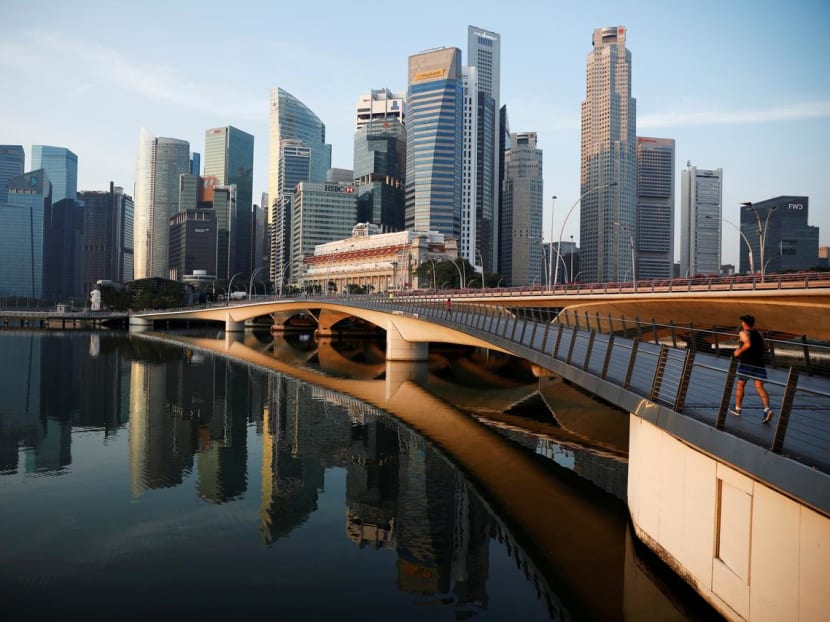Singapore's core inflation in September hits more than 3-year low
SINGAPORE — Singapore's core inflation gauge rose 0.7 per cent in September, slightly less than the previous month as it hit a more than three-year low, data showed on Wednesday (Oct 23).
SINGAPORE — Singapore's core inflation gauge rose 0.7 per cent in September, slightly less than the previous month as it hit a more than three-year low, data showed on Wednesday (Oct 23).
The September figure was also lower than the median forecast in a Reuters poll that called for a 0.8 per cent rise.
Core inflation excludes changes in the price of private road transport and accommodation.
Singapore's headline consumer price index or overall inflation, however, rose 0.5 per cent from a year ago in September, unchanged from the month earlier and as expected.
This was due to a fall in accommodation costs, while core and private road transportation slowed, said the Monetary Authority of Singapore (MAS) and the Ministry of Trade and Industry (MTI) in a news release.
Food inflation was 1.6 per cent year-on-year in September, unchanged from the preceding month, as a slower pace of increase in the cost of non-cooked food offset a marginally faster pace of increase in the prices of prepared meals.
The cost of electricity and gas fell by a steeper 8.3 per cent year-on-year in September, compared to the 7.8 per cent decline in August, mainly due to the dampening effect of the nationwide launch of the Open Electricity Market (OEM) on electricity prices, the joint release said.
The cost of retail goods declined by 0.8 per cent year-on-year in September, moderating from the 1.5 per cent drop in August. This primarily reflected smaller declines in the prices of clothing and footwear items, medical products and telecommunications equipment, the released added.
Services inflation eased to 1.4 per cent year-on-year in September, from 1.7 per cent in August, on the back of a fall in airfares and telecommunications services fees, which more than offset larger increases in recreational & cultural services fees and holiday expenses.
Private road transport inflation was 0.5 per cent year-on-year in September, lower than the 0.6 per cent in August. This was due to a larger fall in petrol prices and a smaller increase in Electronic Road Pricing (ERP) charges, which collectively outweighed a faster pace of increase in car prices.
Accommodation costs dipped by 0.5 per cent year-on-year in September, moderating from the 0.7 per cent drop in August, as housing rentals declined more gradually.
"In the quarters ahead, external sources of inflation are likely to remain benign, amid weak demand conditions, and generally well-supplied food and oil commodity markets. However, oil prices could be volatile in the near term, reflecting geopolitical risks," MAS and MTI said.
On the domestic front, labour market conditions are softening slightly and this would lower wage growth in 2019 and 2020, compared to last year, the release added.
Singapore's core inflation is expected to come in at the lower end of the 1 to 2 per cent range in 2019, and average 0.5–1.5 per cent in 2020.
Overall inflation is projected to be around 0.5 per cent this year and average 0.5 to 1.5 per cent in 2020. CNA
For more stories like this, visit cna.asia.







